Is First Minister Humza Yousaf at risk of sacrificing crucial SNP votes by refusing to ditch his party’s coalition with the Greens? That’s what a growing number of nationalist politicians are worried about. This week, the Bute House Agreement (a framework between the two parties that allows them to govern together) came under criticism from the SNP’s own politicians – and the party is as divided as ever over what to do about them.
The party’s relationship with the Greens needs to be examined, SNP backbenchers believe – and Fergus Ewing and Kate Forbes have gone so far as to call for a party member vote on the Bute House Agreement. Forbes wants to ‘[check] in with members’ about whether they want to continue with the arrangement while Ewing has called for a member vote to take place at the party’s conference in October. This has, however, been rejected by the leadership.
Forbes, who narrowly lost out to Yousaf in the SNP leadership race, has not held back from expressing her reservations about the Greens – and it’s fair to say the SNP’s coalition partners are not her biggest fans either. During the leadership race the Scottish Greens criticised Forbes for her views on LGBTQ+ issues as well as her pushback to their Highly Protected Marine Area (HPMA) proposals. Green co-leaders Patrick Harvie and Lorna Slater told their party conference that Forbes would go against their ‘progressive’ social policies and climate ambitions and that the party would not stay in the Scottish Government with the SNP ‘at any cost’. At the time, Forbes retorted: ‘I can govern Scotland without them.’
Calls for a member vote on the SNP’s partnership with the Greens follows a series of policy failures. The Scottish government’s deposit return scheme has been delayed once more – until October 2025 at the earliest – though not before it led to circular economy minister Lorna Slater fighting off a no confidence vote. The Green party’s HPMA proposals would be ‘catastrophic’ for Scotland’s fishing communities, rural constituents believe. Ewing was so disgusted by the plans that he physically tore apart the HPMA consultation papers in an explosive member’s debate. The lack of progress on dualling the A9 – widely referred to as Scotland’s most dangerous road – has led to growing concerns about when the completion date will actually be. Fingers have been pointed at the Green party, which is known to oppose the building of trunk roads. Forbes has called the A9 project her ‘red line’.
Ewing (who voted in favour of the no confidence motion for Slater) describes his party’s coalition partners as ‘fringe extremists’ and urges Yousaf to ‘detach himself from this dalliance with the Greens and get on with more sensible, sound government’. Joanna Cherry MP has also said she would like to renegotiate the agreement, while Ewing’s views have been reiterated by Alex Neil MP, following the departure of former Green leader Robin Harper from the party. Harper, the UK’s first Green parliamentarian, resigned from his own party earlier this month, criticising its inability to ‘cooperate meaningfully’ within politics and saying it has ‘lost the plot’. The former Green politician went so far as to compare the party’s leftwards shift to the Scottish Socialist party.
Meanwhile Ash Regan, the third contender in the leadership race, has shunned what she has termed the ‘Bute House Disaster’. ‘It is critical for SNP members to have an opportunity to reconsider this arrangement in light of political realities,’ she said. Regan’s belief that ‘all flagship Green party policies have hit the rocks’ equals a ‘“material change in circumstances” from when the Bute House Agreement was signed’.
Ewing also echoes Forbes’ sentiment that a minority SNP government wouldn’t be such a bad alternative after all. ‘The idea it’s impossible to govern with 64 out of 129 MSPs is simply not borne out by the evidence of that experience – and from a far, far weaker position,’ he writes. ‘We in the SNP gain absolutely nothing from the deal except an easy life at Decision Time in Holyrood. But we are nonetheless being dragged down by it.’
All of the SNP’s backbench MSPs were contacted by the Herald about their opinions on the deal. Only one offered a positive response, describing it as the ‘lesser of the two evils’. Other politicians were not quite as generous. One MSP called Slater’s performance in parliament as ‘embarrassing’ while another described the party as having ‘pretty extreme views’, citing ‘real tensions’ in government.
The Greens have dismissed concerns about the coalition as ‘tiresome’ and an ‘irrelevance’. The First Minister has defended the arrangement, saying that the leadership campaign served as a referendum of sorts on the deal: Yousaf stood on a pro-Green platform, and won narrowly on second preference votes. Ewing, for his part, argues instead that of ‘a majority of those members who voted in their first preferences, 52 per cent voted for either Ash Regan or Kate Forbes’. ‘Both expressed serious concerns about the deal,’ he continued. ‘So if that contest proves anything, it’s that the Green deal was not supported by SNP members.’
Though backbenchers have their doubts, senior figures are more positive about the partnership. Stephen Flynn, leader of the SNP’s Westminster group, has backed the arrangement on the grounds of maintaining political stability. ‘The last thing [people] would want is for politicians to be navel-gazing at a time they should be focused on the cost of living crisis,’ he said.
Cracks in the SNP’s smooth exterior multiplied as the leadership race went on
Business secretary Neil Gray has also stuck by the Greens, despite accepting that their policy direction may make his colleagues feel ‘uncomfortable’. Though it’s not as if Gray hasn’t had his own run-ins with this party’s coalition partners. He reportedly reprimanded Slater for her approach to business, telling her that she should not make businesses feel as though the government is ‘coming for them’ with proposals that included recycling fines and a coffee cup levy.
Cracks in the SNP’s smooth exterior multiplied as the leadership race went on, markedly dividing the conservative and progressive arms of the party membership. The contest saw nationalist politicians criticising each other in a way that Nicola Sturgeon’s party discipline would not have allowed for — and to the dismay of senior party figures, Forbes’ infamous ‘continuity won’t cut it’ line was only the beginning. Rifts between party factions have only become more visible, and the presence of the Greens in government appears to be the next big dividing line within the SNP.
Yousaf and his allies want to stick with the Bute House Agreement but the resentment within the party is getting harder for him to ignore. Will there be a vote on the Bute House Agreement at the party’s conference? With growing concern among SNP backbenchers about the impact the Greens are having on their party, it doesn’t seem impossible. In 2021, 95 per cent of SNP members agreed that the deal was the right thing to do to ensure a pro-independence majority. But with the part they’ve played in failed policies and hits to government credibility, the Greens appear more hindrance than help to a party that is increasingly struggling for support.
Got something to add? Join the discussion and comment below.
Get 10 issues for just $10
Subscribe to The Spectator Australia today for the next 10 magazine issues, plus full online access, for just $10.

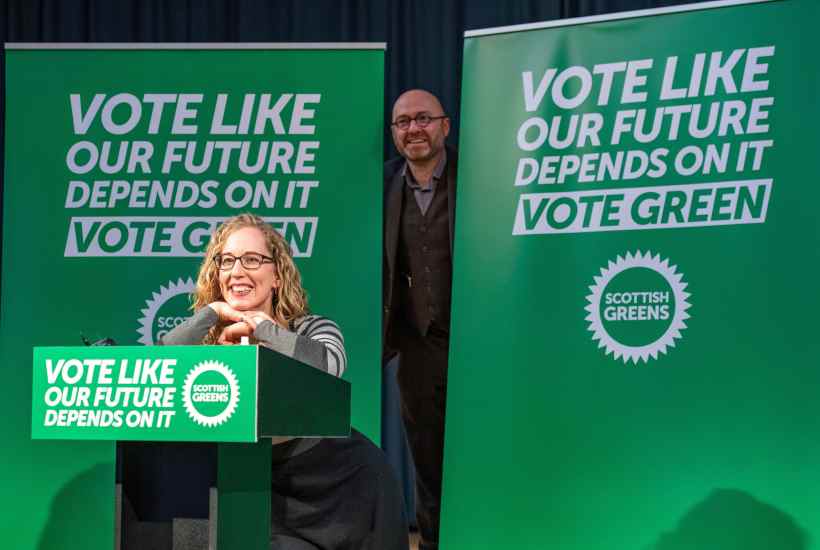

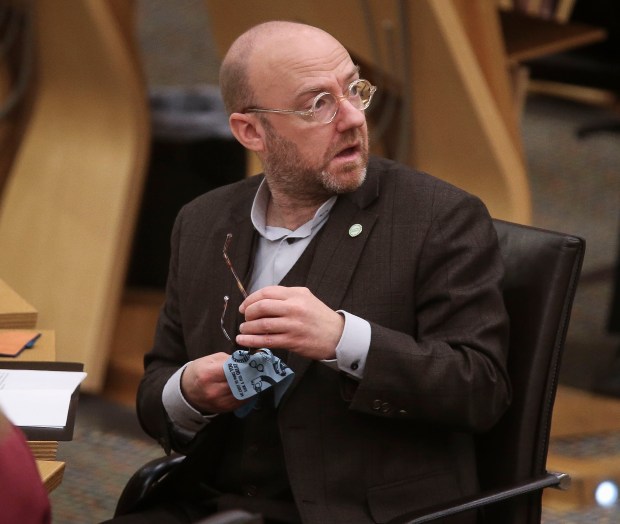
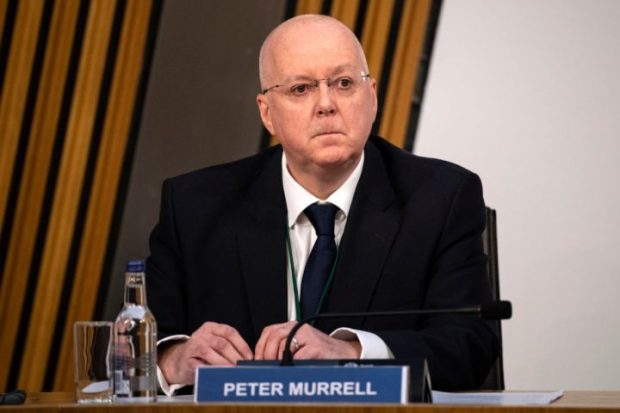
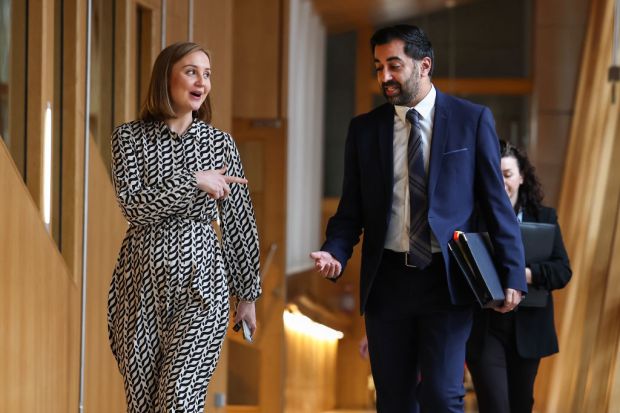
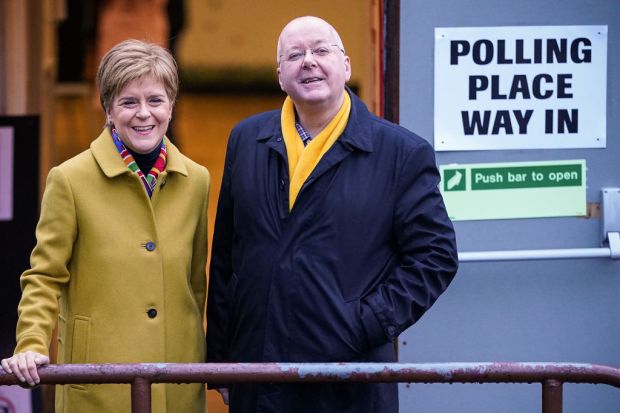
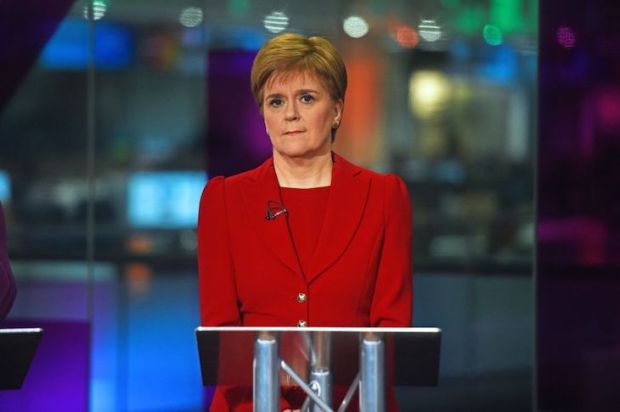












Comments
Don't miss out
Join the conversation with other Spectator Australia readers. Subscribe to leave a comment.
SUBSCRIBEAlready a subscriber? Log in